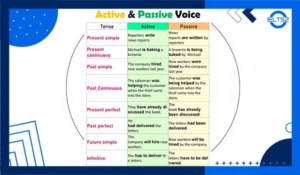سوالات اسپیکینگ آیلتس پارت سوم (موضوع پرداخت آنلاین)
جدیدترین سوالات اسپیکینگ آیلتس با موضوع پرداخت آنلاین که مربوط به شهریور 1403 (سپتامیر 2024) هستند را با هم بررسی میکنیم. برای هر سوال یک نمونه پاسخ نمره 9 در دسترس شما عزیزان می باشد. در پایان واژگان حرفه ای نمره بالایی برای این موضوع فهرست شده است. دانلود رایگان 1000 نمونه سوال اسپیکینگ آیلتس نمره 9 پیشنهاد بعدی ما به شماست.
جدیدترین پرسش های اسپیکینگ آیلتس (موضوع پرداخت آنلاین) + پاسخ نمره 9
Question 1: How do people usually prefer to pay for things in your country, with cash or electronically? Why?
In my country, electronic payments have become the preferred method of transaction. The convenience and speed associated with digital payment systems like mobile banking and card transactions have largely outweighed the use of cash. Furthermore, the widespread adoption of smartphones has made it easier for people to access these services. Additionally, during the COVID-19 pandemic, there was a significant shift towards contactless payments due to health and safety concerns.
Question 2: What are the advantages and disadvantages of paying with cash compared to online payments?
Paying with cash offers a tangible sense of financial control and is often preferred in informal or rural settings where infrastructure for digital payments may be lacking. Cash transactions are also anonymous, providing a layer of privacy. However, the downsides include the risk of theft, loss, and the inconvenience of carrying large amounts. Conversely, online payments provide efficiency and security, as they often come with encryption and fraud protection. Yet, they are not without flaws, as they may expose users to cybersecurity risks and dependency on technology.
Question 3: Do you think cash will ever be completely replaced by digital payment methods? Why or why not?
While it’s plausible that digital payments will continue to dominate, I don’t foresee cash being entirely replaced. There are certain demographics and situations, particularly in rural areas or among the elderly, where cash remains the preferred method due to lack of access to technology or a general mistrust of digital systems. Additionally, cash is critical for emergencies or when technology fails. Therefore, while the trend is certainly towards a cashless society, complete elimination of cash is unlikely in the near future.
Question 4: How has the use of online payments changed in recent years?
The use of online payments has undergone a dramatic transformation in recent years, primarily due to technological advancements and changes in consumer behavior. The rise of fintech companies, along with integrated payment platforms such as Apple Pay, has made digital transactions more streamlined and user-friendly. The pandemic further accelerated this shift, with many businesses prioritizing contactless and online payment options. As a result, we’ve seen a significant increase in the volume and variety of transactions conducted online.
Question 5: What risks do people face when using online payments?
There are several inherent risks associated with online payments. Cybersecurity threats such as hacking, phishing, and identity theft are significant concerns. Users may also encounter issues related to privacy, as personal and financial information is often stored on digital platforms. Additionally, there’s the possibility of transaction errors or system failures that could lead to financial loss. Moreover, some individuals may fall victim to fraudulent websites or scams, particularly if they are not cautious while making payments online.
Question 6: Do you think online payment methods help young people today manage money better compared to older generations?
In some respects, yes. Digital payment systems often come with features such as spending tracking, budgeting tools, and instant notifications, which can help young people manage their finances more effectively. They can easily monitor their expenditures and set financial goals using apps, something that was more challenging for previous generations. However, the ease of spending online, especially with one-click purchases, could also lead to impulse buying and financial mismanagement if not handled responsibly. Older generations, while not as tech-savvy, may have been more accustomed to traditional budgeting methods, which required more conscious financial planning.
لغات آکادمیک موضوع پرداخت آنلاین با معنی و مثال
در ادامه برای درک هر چه بهتر کاربرد واژگان، لیست لغات و عبارات مهم پاسخ های اسپیکینگ آیلتس موضوع پرداخت آنلاین را با معنی فارسی، تلفظ و یک جمله کاربردی برای اسپیکینگ آیلتس با ترجمه فارسی برای شما مشخص کردیم.
1. Electronic payments
- معنی: پرداختهای الکترونیکی
- تلفظ: /ɪˌlɛkˈtrɒnɪk ˈpeɪmənts/
- جمله: Electronic payments have become the norm in most countries.
(پرداختهای الکترونیکی در اکثر کشورها به هنجار تبدیل شده است.)
2. Outweighed
- معنی: بیشتر بودن از؛ برتری داشتن
- تلفظ: /aʊtˈweɪd/
- جمله: The benefits of online shopping have clearly outweighed the drawbacks.
(مزایای خرید آنلاین به وضوح از معایب آن بیشتر است.)
3. Widespread adoption
- معنی: پذیرش گسترده
- تلفظ: /ˈwaɪdspred əˈdɒpʃən/
- جمله: The widespread adoption of smartphones has revolutionized communication.
(پذیرش گسترده تلفنهای هوشمند باعث تحول در ارتباطات شده است.)
4. Significant shift
- معنی: تغییر قابل توجه
- تلفظ: /sɪɡˈnɪfɪkənt ʃɪft/
- جمله: There has been a significant shift towards online learning in recent years.
(در سالهای اخیر تغییر قابل توجهی به سمت آموزش آنلاین ایجاد شده است.)
5. Tangible
- معنی: ملموس، محسوس
- تلفظ: /ˈtændʒɪb(ə)l/
- جمله: Paying with cash gives people a tangible sense of control over their finances.
(پرداخت با پول نقد به مردم احساس کنترل ملموسی بر روی امور مالیشان میدهد.)
6. Infrastructure
- معنی: زیرساخت
- تلفظ: /ˈɪnfrəˌstrʌktʃər/
- جمله: Many rural areas still lack the necessary infrastructure for digital payments.
(بسیاری از مناطق روستایی هنوز زیرساختهای لازم برای پرداختهای دیجیتال را ندارند.)
7. Anonymous
- معنی: ناشناس
- تلفظ: /əˈnɒnɪməs/
- جمله: Cash transactions are anonymous, which some people prefer for privacy reasons.
(تراکنشهای نقدی ناشناس هستند که برخی افراد به دلایل حریم خصوصی آن را ترجیح میدهند.)
8. Efficiency
- معنی: کارایی
- تلفظ: /ɪˈfɪʃənsi/
- جمله: Online payments are known for their speed and efficiency.
(پرداختهای آنلاین به خاطر سرعت و کاراییشان شناخته شدهاند.)
9. Plausible
- معنی: محتمل، منطقی
- تلفظ: /ˈplɔːzɪb(ə)l/
- جمله: It is plausible that cash might eventually be replaced by digital payments.
(محتمل است که پول نقد نهایتاً جایگزین پرداختهای دیجیتال شود.)
10. Certain demographics
- معنی: گروههای خاص جمعیتی
- تلفظ: /ˈsɜːtn ˌdɛməˈɡræfɪks/
- جمله: Certain demographics, such as the elderly, still prefer to use cash.
(گروههای خاص جمعیتی، مانند سالمندان، هنوز ترجیح میدهند از پول نقد استفاده کنند.)
11. Mistrust
- معنی: بیاعتمادی
- تلفظ: /ˌmɪsˈtrʌst/
- جمله: Some people mistrust online payment systems due to security concerns.
(برخی افراد به سیستمهای پرداخت آنلاین بیاعتماد هستند به دلیل نگرانیهای امنیتی.)
12. Emergencies
- معنی: مواقع اضطراری
- تلفظ: /ɪˈmɜːdʒənsiz/
- جمله: Cash is often essential in emergencies when digital systems fail.
(پول نقد معمولاً در مواقع اضطراری که سیستمهای دیجیتال از کار میافتند، ضروری است.)
13. Dramatic transformation
- معنی: تحول چشمگیر
- تلفظ: /drəˈmætɪk ˌtrænsfɔːˈmeɪʃən/
- جمله: The dramatic transformation in online shopping has changed consumer behavior.
(تحول چشمگیر در خرید آنلاین رفتار مصرفکنندگان را تغییر داده است.)
14. Fintech
- معنی: فناوریهای مالی
- تلفظ: /ˈfɪntek/
- جمله: The rise of fintech companies has revolutionized the banking industry.
(رشد شرکتهای فناوری مالی صنعت بانکداری را دگرگون کرده است.)
15. Integrated payment platforms
- معنی: پلتفرمهای پرداخت یکپارچه
- تلفظ: /ˈɪntɪɡreɪtɪd ˈpeɪmənt ˈplætfɔːmz/
- جمله: Integrated payment platforms allow users to make payments easily from one app.
(پلتفرمهای پرداخت یکپارچه به کاربران اجازه میدهند به راحتی از یک برنامه پرداختها را انجام دهند.)
16. Streamlined
- معنی: ساده و کارآمد
- تلفظ: /ˈstriːmlaɪnd/
- جمله: The payment process has been streamlined to make it faster and more efficient.
(فرآیند پرداخت سادهتر شده است تا سریعتر و کارآمدتر باشد.)
17. Inherent risks
- معنی: خطرات ذاتی
- تلفظ: /ɪnˈhɪərənt rɪsks/
- جمله: There are inherent risks involved in sharing personal data online.
(خطرات ذاتی در به اشتراکگذاری دادههای شخصی به صورت آنلاین وجود دارد.)
18. Cybersecurity threats
- معنی: تهدیدات امنیت سایبری
- تلفظ: /ˌsaɪbərsɪˈkjʊərɪti θrets/
- جمله: Cybersecurity threats are a major concern for online shoppers.
(تهدیدات امنیت سایبری یک نگرانی بزرگ برای خریداران آنلاین است.)
19. Transaction errors
- معنی: خطاهای تراکنش
- تلفظ: /trænˈzækʃən ˈɛrərz/
- جمله: Occasional transaction errors can occur when using online payment systems.
(خطاهای گاه به گاه تراکنش ممکن است در هنگام استفاده از سیستمهای پرداخت آنلاین رخ دهد.)
20. Fraudulent websites
- معنی: وبسایتهای جعلی
- تلفظ: /ˈfrɔːdjʊlənt ˈwɛbˌsaɪts/
- جمله: People should be cautious of fraudulent websites that steal personal information.
(مردم باید از وبسایتهای جعلی که اطلاعات شخصی را سرقت میکنند، محتاط باشند.)
21. Features
- معنی: ویژگیها
- تلفظ: /ˈfiːtʃərz/
- جمله: Many online banking apps come with budgeting features that help manage expenses.
(بسیاری از برنامههای بانکداری آنلاین دارای ویژگیهای بودجهبندی هستند که به مدیریت هزینهها کمک میکنند.)
22. Spending tracking
- معنی: ردیابی هزینهها
- تلفظ: /ˈspendɪŋ ˈtrækɪŋ/
- جمله: Young people benefit from spending tracking tools to monitor their expenses.
(جوانان از ابزارهای ردیابی هزینهها برای نظارت بر مخارج خود بهره میبرند.)
23. Impulse buying
- معنی: خرید ناگهانی و بیفکر
- تلفظ: /ˈɪmpʌls ˈbaɪɪŋ/
- جمله: Online shopping can sometimes lead to impulse buying due to its ease.
(خرید آنلاین گاهی اوقات به خرید ناگهانی منجر میشود به دلیل آسانی آن.)
24. Conscious financial planning
- معنی: برنامهریزی مالی آگاهانه
- تلفظ: /ˈkɒnʃəs faɪˈnænʃəl ˈplænɪŋ/
- جمله: Older generations tend to have more conscious financial planning habits.
(نسلهای قدیمیتر تمایل دارند عادات برنامهریزی مالی آگاهانهتری داشته باشند.)
سخن پایانی
در این پست چندین سوال اسپیکینگ آیلتس برای موضوع پرداخت آنلاین را با هم دیدیم. این سوالات از یکی از سنترهای آیلتس در سال 1403 گزارش شده است و سوالات واقعی آیلتس هستند. در ادامه کلمات و عبارات کاربردی برای نمره 9 در پاسخ ها را با هم دیدیم. این لغات نه تنها برای اسپیکینگ آکادمیک و نمره 9 آیلتس مفید هستند، بلکه به گسترش دایره لغات و تسلط شما بر زبان انگلیسی کمک میکنند. این آموزش را برای مطالعه بیشتر در همین زمینه به شما عزیزان پیشنهاد میکنیم. ضمنا هر سوالی برای شما مطرح هست با در بخش کامنت ها در همین صفحه یا در گروه تلگرامی آیلتس ما حتما مطرح بفرمایید ❤️






